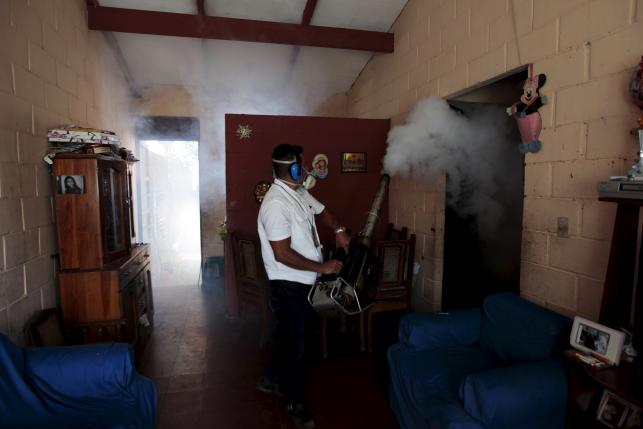-
Tips for becoming a good boxer - November 6, 2020
-
7 expert tips for making your hens night a memorable one - November 6, 2020
-
5 reasons to host your Christmas party on a cruise boat - November 6, 2020
-
What to do when you’re charged with a crime - November 6, 2020
-
Should you get one or multiple dogs? Here’s all you need to know - November 3, 2020
-
A Guide: How to Build Your Very Own Magic Mirror - February 14, 2019
-
Our Top Inspirational Baseball Stars - November 24, 2018
-
Five Tech Tools That Will Help You Turn Your Blog into a Business - November 24, 2018
-
How to Indulge on Vacation without Expanding Your Waist - November 9, 2018
-
5 Strategies for Businesses to Appeal to Today’s Increasingly Mobile-Crazed Customers - November 9, 2018
Zika Virus Likely to Spread Across the Americas, WHO Says
The Zika virus is likely to spread across almost all of North and South America, the World Health Organization warned.
Advertisement
The virus is being linked to microcephaly, a condition where babies are born with small heads and damaged brains, and is carried by the same mosquito that transmits dengue and yellow fever.
Most people with the Zika virus are asymptomatic, and the mild end of the symptoms spectrum includes fever, rash, muscle pain and headaches.
There is no vaccine for Zika, and no specific treatment – patients simply take pain-killers and other medication to combat the symptoms.
“[Firstly, ] the population of the Americas had not previously been exposed to Zika and therefore lacks immunity, and [secondly] Aedes mosquitoes – the main vector for Zika transmission – are present in all the region’s countries except Canada and continental Chile”.
Brazil health officials have reported almost 4,000 cases of microcephaly recently – including as much as 2 percent of all newborns in its hardest-hit state, according to Reuters.
Earlier this week, the CDC issued interim guidelines for pregnant women traveling to countries where the disease is being transmitted, while some countries have gone as far as to advise citizens not to get pregnant.
“It was first detected in the Zika forest of Uganda in 1947, but is now thought to have spread through most of South and Central America, and the Caribbean”.
Travel advice from the National Travel Health Network and Centre urges pregnant women to reconsider travel to areas where the outbreak has been reported.
“We don’t have an epidemiological alert yet in Mexico, but considering the rapid spread of the virus and the fact that we already have cases shows that we must be on alert”, Carmen Robles, former deputy director of La Raza Medical Center in Mexico City, told VICE News.
In the past, an average of 150 children were born afflicted with microcephaly each year in Brazil – but after a Zika epidemic last year the number of cases reported between October 2015 and January 2015 was 3,500. Most infected people don’t develop symptoms. “It has never happened before and it was probably caused by congenital infections of Zika virus, caused by pregnant women getting infected and the virus going to the baby’s brain”.
Transmission of the virus by Aedes mosquitoes is well documented, health officials said, although researchers continued to investigate other possible transmission routes.
There have been no known reports of locally transmitted Zika cases in the USA, but there have been at least a dozen cases in returning travelers.
DFAT says pregnant women heading to impacted regions should wear long sleeve shirts and long trousers and use insect repellent, bed nets and screened-in rooms to avoid mosquito bites.
Advertisement
Since the situation changes frequently, it’s important to check the CDC’s website for the latest developments in these areas.





























